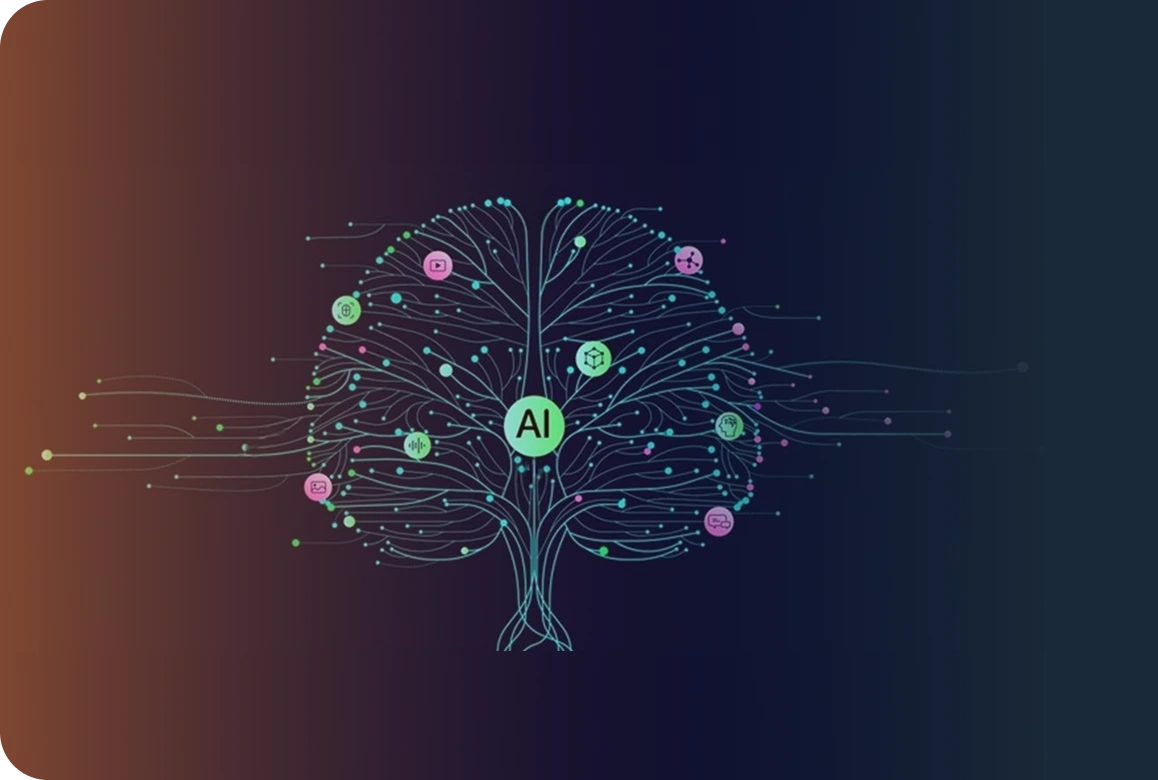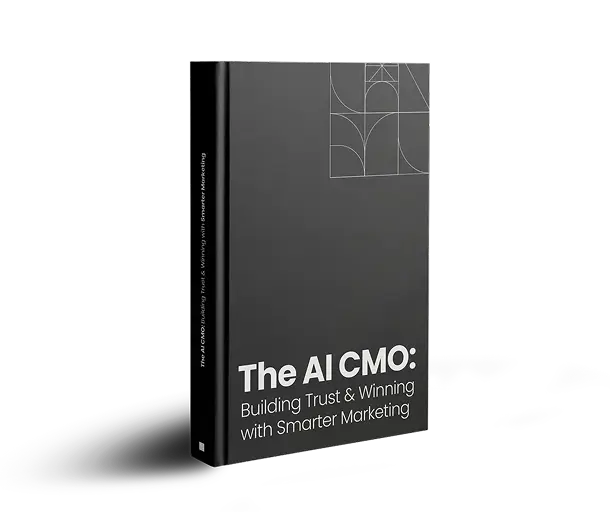
Highlights
- Lead with brand and trust: The best campaigns build recognition and familiarity long before a buyer is in-market.
- Blend data and creativity: Audience insights, intent signals, and storytelling now work hand in hand to guide strategy.
- Keep it human: Buyers respond to real people, authentic stories, and brands that communicate with empathy..
- Align across teams: Shared goals between sales, product, and marketing improve funnel velocity and lead quality.
- Focus on resonance, not reach: Campaigns that connect emotionally and contextually outperform those that simply broadcast louder.
Introduction
As buyer journeys grow increasingly complex and digital-first,
demand generation
has evolved far beyond lead forms and gated content. Today’s CMOs and growth
leaders are challenged to create campaigns that break through the noise,
connect with intent-rich audiences, and drive real business impact.
This month, we gathered insights from leading marketing voices across the
B2B landscape on one big question:
How do you build integrated
demand-gen campaigns
that stand out and fill your pipeline with qualified leads?
Here’s what they had to say.
Here’s Our Expert Panel
- Adam Holmgren
- Kris Bruynson
- David Sweenor
- Eric Thum
- Swapna Desai
- Daniel Kuperman
- Shalev Sabag
- Hailey McDonald
- Tom Kuhr
- Alexandra Ferraro
#1 Adam Holmgren

“It’s all about reaching as many potential buyers as possible in the 95% of
companies that aren’t looking right now. The key is using distinctive brand
assets so you are remembered when they enter the market and getting audience
penetration as high as possible within your budget. On top of that, feature
people instead of only the company, because people buy from people. Starting
out by being active on LinkedIn and then sponsoring the best performing
organic posts as Thought Leader Ads is a great way to do that.”
Author Bio
Adam Holmgren is the Director of Demand Generation at Rillion and the
Co-Founder & CEO of Fibbler. He’s passionate about helping B2B marketers
connect LinkedIn Ads performance to real CRM pipeline and prove marketing
ROI. Connect with Adam on
LinkedIn.
#2 Kris Bruynson

I build integrated
campaigns by starting with audience and journey mapping, using first-party
and intent data to understand how buyers actually move through the funnel.
From there, I align creative, content, and channels around a single
narrative that speaks directly to pain points, not just product features.
Communication is key; I use shared dashboards with sales to focus on funnel
velocity rather than form fills.
Author Bio
Kris Bruynson is the VP of Marketing & Product with over 17 years of
experience driving growth for top Canadian brands like Rogers, BMO, Kraft,
and Shoppers Drug Mart. Get in touch with Kris over
LinkedIn.
#3 David Sweenor

For product
marketers, the challenge isn’t a lack of content; it’s a lack of trust in a
digital-first world. While the obvious play is gating assets, the truly
impactful, AI-driven strategy is to personalize experiences at scale. We can
enable the internal sale by using AI to generate and surface hyper-relevant,
ungated content for champions to share, and by fostering niche communities
where AI-powered analytics can extract invaluable ‘voice of customer’
insights—directly fueling a more intelligent
go-to-market
strategy.
Author Bio
David Sweenor is the Director of Product Marketing and a recognized AI and
analytics thought leader with over two decades of B2B marketing experience.
Stay connected with David over
LinkedIn.
#4 Eric Thum

The challenge
today isn’t reach – it’s resonance. Too many campaigns still chase clicks,
but the best ones earn conviction. To stand out, you have to choose bold
over beige and human over hype. Every program should start with a clear,
differentiated point of view, amplified through trusted voices (such as
customers, partners, or employees) and use data not to automate louder, but
to connect deeper. That’s how you become the signal, not the noise.
Author Bio
Eric Thum is a global B2B SaaS marketing executive with a track record of
building category-leading brands at companies like Salesforce, VTS, and
Juniper Square. Follow Eric over
LinkedIn.
#5 Swapna Desai

As buyer journeys
become more complex and digital-first, I focus on building demand generation
programs that connect strategy, data, and creativity around a clear audience
insight. It starts with alignment across sales, product, and marketing to
define the ideal customer profile and buying triggers. From there, I create
integrated, multi-channel campaigns that combine paid media, content, email,
and events to reach buyers at every stage. At SPS Commerce, this approach
helped us improve
lead quality
and pipeline velocity by focusing on targeted segments, creative
storytelling, and measurable impact. The result is a marketing engine that
not only stands out in the market but consistently delivers qualified leads
that convert.
Author Bio
Swapna Desai is a Senior Director of Marketing with a strong track record in
building high-growth B2B SaaS, financial services, and CPG brands.For more,
visit Swapna’s
LinkedIn.
#6 Daniel Kuperman

Remember to keep it human. In the end, buyers want to
simply understand what you do, how it helps them solve a problem, and why they should choose you over
alternatives. Keeping your messaging (in campaigns, ads, etc.) in simple and accessible language will win every
time.
Author Bio
Daniel Kuperman is the VP of Product Marketing at Jellyfish, with previous leadership roles at Atlassian,
Snowflake, and MindTickle. He’s passionate about building high-performing marketing teams and driving
go-to-market excellence for category-leading tech brands. Get in touch with Daniel on
LinkedIn.
#7 Shalev Sabag

For me, as buyers get more digital-first, I try to
focus less on getting attention and more on actually being relevant. It’s about showing up where they already
are, with something that feels useful and real, not like another ad. I use intent data and context to make sure
the message fits the moment and what they care about. It’s not about doing more campaigns, it’s about doing them
smarter
Author Bio
Shalev Sabag is an ABM Manager at Atera and a strategic marketer who blends data, technology, and creativity to
build campaigns that drive meaningful growth. Connect with Shalev on
LinkedIn.
#8 Hailey McDonald

Even in an increasingly digital world, buyers still
choose to buy from brands and people they trust. With more noise and less patience, buyers are tuning out the
brands that talk at them and leaning into the ones that are real, human, and grounded in shared experience.
The best demand generation strategies today hinge on customer stories, employee voices and value-based content.
People don’t just want features, they want to feel something – understood, connected, alive. Campaigns and
experiences that evoke those emotions create a superhighway to memory, affinity and customer loyalty.
Author Bio
Hailey McDonald is the SVP of Growth Marketing at Marigold, leading initiatives that connect brand strategy,
business development, and customer growth. Get in touch with Hailey over
LinkedIn.
#9 Tom Kuhr

Marketers and SDRs have hijacked generative AI and are
cranking out more ‘personalized’ content than ever. The brands that are winning aren’t the ones shouting the
loudest or sending the most email. They’re the companies who have marketers that really understand their
audiences, and even differentiate buyers and users. They speak to them in a way that feels real. AI just can’t
replace sincere empathy.
Think about it like digital ads. They were exciting at
first, but over time people just started tuning them out.
With adblockers and cookie-less browsers, ads are doing less and less.
The same thing is already happening with AI-generated content. That’s why the basics still matter. Know who
you’re talking to. Use their words, not yours. Build trust over time. Keep authenticity and human connections
front and center.
Author Bio
Tom Kuhr is the SVP of Marketing at Fastbreak AI, helping B2B software companies turn complex technical
capabilities into compelling customer experiences that drive rapid growth. For more, visit Tom’s
LinkedIn.
#10 Alexandra Ferraro

Demand generation doesn’t start with a
campaign launch. It starts long before that. By the time a prospect
engages with sales, they’re already about 70% through their buying journey and likely have a short list of
preferred vendors in mind. That’s why brand familiarity is the real foundation of performance. When your
audience already knows and trusts your value, your demand-gen programs don’t have to introduce you; they simply
reinforce why you belong on that shortlist. The result? Stronger engagement, higher conversion, and greater
impact on the pipeline.
Author Bio
Alexandra Ferraro is the Head of Marketing at Intelligencia AI, a full-stack marketer with a proven record of
driving growth for B2B and SaaS companies through multi-channel strategy and data-driven execution. Stay
connected with Alexandra over
LinkedIn.
Conclusion
Integrated demand generation today is as much about connection as conversion. The marketers leading the way are
those who combine data intelligence with authenticity, ensuring every campaign feels relevant, human, and
genuinely valuable, because in a digital-first world, trust is the ultimate demand driver.
Our blog
Latest blog posts
Tool and strategies modern teams need to help their companies grow.

Learn how AI-Enhanced Tele-Verification and Account-Based Experience (ABX) together h...

Learn how to improve lead quality and boost conversion rates in B2B with AI enrichmen...

Unlock the Top 5 templates to boost your go-to-market strategy in 2025–2026 with AI...






